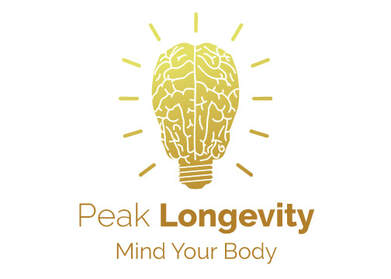The LENS, or Low Energy Neurofeedback System, is a unique, effective, and safe form of neurotherapy that facilitates changes in people of all ages with a wide variety of presenting issues. The LENS is a system that utilizes advanced technology software to track brainwaves in real time, and uses this information to help the brain reset it’s neural-connectivity. It can be used to optimize the functioning of the brain and the rest of the Central Nervous System.
|
HOW DOES LENS WORK?
|
WHAT CONDITIONS DOES LENS TREAT?
|
WHAT MAKES LENS DIFFERENT?
|
|
LENS works by disrupting the maladaptive patterns or looping mechanisms that the brain has acquired in response to acute conditions such as birth trauma, concussion, depression, addiction, etc. The LENS encourages the brain to release these inhibitive patterns, and adapt a higher functioning neural circuitry.
Each clients EEG signals are unique to them and constantly changing. The LENS measures These ever-changing signals of the client, and matches the treatment to the client’s own physiological (neurological) fingerprint. During a session, sensors are applied to the scalp to listen in on brainwave activity. The signal is processed by computer, and information is extracted about certain key brainwave frequencies. The information is then brought back through the sensors on the scalp. The results are reduction and/or elimination of presenting problems. The session are brief (usually 3-5 minutes), gentle (usually the client feels nothing during the session), and the changes are lasting with some exceptions such as Parkinson’s and MS, the treatment needs to be ongoing to sustain the improvement. |
|
LENS is a specific kind of neurofeedback that operates much more rapidly than traditional neurofeedback. It does not require any focused attention and the person does not need to do anything specific during the session. Sessions last between a few seconds and a few minutes, and results are typically seen in 1-20 sessions. This makes LENS an excellent option for all individuals, including those who are unable to attend for lengthy periods of time and/or who are unable to understand instructions.
HOW EFFECTIVE IS LENS? It is estimated that over 750,000 people have been treated with LENS in over 4 million sessions. The LENS can diminish or resolve the symptoms in half the number of sessions compared to other neurofeedback systems. DO THE RESULTS OF LENS LAST? If the problem being addressed is one of brain dysregulation, then the answer is YES. Neurofeedback involves brain training and learning, and the brain will continue to use and reinforce its new capabilities even after sessions have been completed. At times, there are unknown issues such as early-stage degenerative disease, allergies, strong reactions to some foods or pollens, or spills and falls leading to bumps on the head. In these instances, longer courses of LENS may be needed. Matters are different when we are dealing with degenerative conditions, like Parkinson’s or the dementias, or when we are working against continuing insults to the system, as may be the case in the autism spectrum. In such cases, the LENS sessions may need to be continued at some level over time. |
Anxiety+Depression+Sleep Issues+Migraines+Headaches+Pain Management+Disruptive Behavior Disorders+ADD+Spectrum Disorders+Concussive Symptoms+Sensory Issues+Goal Directed Behavior+and More...



